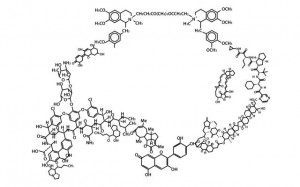The opinions represented in this article do not necessarily represent those of the staff of CUIndependent.com nor any of its sponsors.
It’s September, kids. The air is getting colder, it’s drizzling, and everyone’s flocking inside to drink tea and pretend to do productive things on their laptops.
In other words, it’s cold season, and since you’re all crammed together inside buildings, you’ll probably catch one. According to BBC health, the average adult gets two to four infections a year, mostly between September and April. Did I mention it’s September?
Naturally, the first thing you’ll want to know is how to avoid getting the cold, unless you’re some kind of masochist who thinks breathing freely is for the weak-willed. But if you do enjoy respiratory function, I have good and bad news.
The good news is that on Aug. 23, the Colorado Daily published an article titled “Cure it with the earth,” full of advice for treating the most common winter ailments. The bad news is that it’s not very good advice.
The article is based on an interview with Kathy Thorpe, the owner of Six Persimmons Apothecary in Boulder, which bills itself as “a place where people could come for natural remedies that really work.”
According to Thorpe, “The body is the greatest healer. Symptoms and illnesses occur because the body is out of balance. Alternative medicine seeks the root cause, rather than just treating or suppressing symptoms.”
There have been a lot of books written about alternative medicine. I recommend “Trick or Treatment” by Edzard Ernst and Simon Singh.
Most of the remedies listed in the Daily article are homeopathic, incorrectly defined as “a system for the treatment of disease by small doses of natural substances.” That’s simply not true. Homeopathic remedies are based on two principles. The first is that “like cures like,” meaning that a substance that causes a given symptom can also be used to treat that symptom.
The second is that the more diluted an active ingredient is (usually in water or sugar), the stronger its effects become. This is because the water in which the original ingredient is diluted can supposedly “remember” the characteristics of that ingredient.
Let’s look at one specific example, oscillococcinum. This is the most common homeopathic drug in the world, manufactured exclusively by one company in France. It is sold at a strength of 200C.
200C means that the original ingredient is diluted to one part in 100 to the 200th power. Take a moment to wrap your head around that number. That’s a number one followed by four hundred zeros. I’d love to put that number in perspective for you, but there is no perspective that can be used. Even the number of atoms in the entire observable universe is only 10 raised to the 80th power.
This means that there is not a single molecule of the final ingredient in the homeopathic solution, a fact that homeopaths dismiss by reverting to the assertion that water has “memory.” Conveniently, the water seems to have “forgotten” all the digestive tracts it’s run through.
In 110 studies, homeopathy demonstrated no better results than a placebo. It’s water and sugar. You could treat your cold with Kool-Aid and it would work just as well, and be tastier and a lot cheaper to boot.
Even the traditional approaches to cold treatment aren’t necessarily useful. For example, everyone “knows” that taking Vitamin C supplements will help your immune system, right? Sorry. A meta-analysis of 29 studies involving over 11,000 studies showed that Vitamin C didn’t reduce the incidence of the common cold. Ready? The news only gets worse.
Echinacea, an herb that’s claimed to boost immune function, doesn’t work. Steam inhalation is supposed to loosen up mucus and kill the virus with heat, but that doesn’t work either. In some cases, it has actually caused severe burns.
So what does work?
A study by the National Institute of Health has shown that zinc supplements have some effectiveness in reducing the severity and duration of the cold. There is really not much that can be done medicinally though. The unfortunate truth is that you’re almost certainly going to get a cold, and nothing short of a biohazard suit will work with absolute effectiveness.
The nice thing is that the cold isn’t usually that severe and doesn’t last very long. The best thing you can do for yourself is to try to get enough sleep, stay hydrated, and stay fed. Make sure your body has the energy to support your immune system, because that’s the best defense you’ve got.
The real problem here is back with our friends at the Daily. That article was written with only one source, and no background research into the remedies it recommends. Any author that makes recommendations about people’s health has a responsibility to report accurately and fairly about those recommendations, and this article falls sorely short in that respect.
In this case, the potential consequences are pretty mild. Worst case scenario: you get a cold anyway. To take the stance that “modern” medicine is bad and that “ancient” or “alternative” cures are always better is plain ignorance towards centuries of medical research, careful studies and the progress of science. It warns people away from proven remedies and toward alternatives that are often useless, which is irresponsible at best and dangerous at worst.
Take your medical advice with a grain of salt. Do the research yourself. It doesn’t take long, and there are dozens of free resources for this kind of information. If you don’t have that option, keep in mind that traditional medications can’t be sold without demonstrating efficacy in clinical trials. “Natural” remedies have no such restrictions.
When in doubt, trust a doctor.
Contact CU Independent Staff Writer Angus Bohanon at Angus.bohanon@gmail.com

